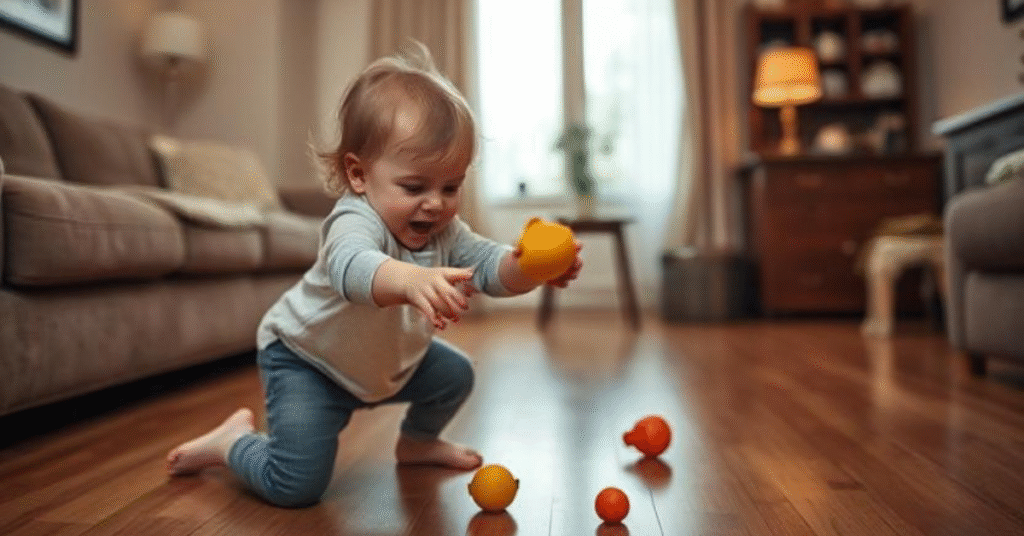Gentle vs traditional parenting isn’t just a modern debate—it’s a reflection of how many of us were raised. Set the rules. Stick to them. No arguing. That’s how I was raised. My parents didn’t explain much. I didn’t question much. If I did, it usually ended with a stern look or a raised voice. And back then, that was how love was shown.
Then, one day, I saw fear—not of consequence, but of me—in my child’s eyes. That scared me. I didn’t want obedience built on fear. I wanted understanding, trust, and above all… safety.
That was when I found gentle parenting—not from a trending reel or blog post, but from a place of deep, whispered guilt mixed with hope. I needed to try something different. Something that made both of us feel seen.
If you’re wondering what gentle parenting really means, and how it honestly compares to the more “traditional” style many of us inherited, let me break it down—completely raw and human.
Traditional Parenting: How We Were Raised
Traditional parenting wasn’t always harsh, but it was clear: obey—or face consequences.
- Rules > understanding
- Crying meant weakness
- Punishment equaled discipline
- “Because I said so” ended the conversation
Our parents did what they knew—what they’d been taught themselves. They loved us; they just showed it through compliance and control. Looking back, we might realize that love often came bound with fear, and emotional expression was brushed aside.
Many of us grew up hiding emotions, avoiding conflict, or fearing the weight of disapproval. We learned to behave, but not always understand.
Gentle Parenting: What It Really Is
Gentle parenting isn’t passive. It’s not about letting your child boss you around. It’s about being grounded in:
- Empathy — feeling what they feel
- Connection — before correction
- Calmness — even when you’re not calm
- Boundaries — explained, respected, and consistent
You still say “no.” You still set rules. But you do it with kindness, choosing to teach rather than punish.
A Real Moment: When Frustration Turns to Connection
Your toddler throws their toy across the room mid-tantrum. In that moment, the choice between gentle vs traditional parenting becomes real—and hard.

Traditional response:
“Stop that right now! Go to your room!”
Gentle response:
You kneel down, “I see you’re angry. Throwing isn’t safe. Let’s take a breath and then we can find a safe way to show how you feel.”
It won’t always stop the meltdown. But it teaches—with your presence, not power. Over time, those moments build emotional intelligence.
Quick Comparison Table: Gentle Vs. Tradtional Parenting
| Aspect | Traditional Parenting | Gentle Parenting |
|---|---|---|
| Discipline | Punishment, fear-based | Teaching with empathy |
| Boundaries | Rigid, unexplained | Clear, explained, and kindly upheld |
| Emotional Handling | Suppressed or dismissed | Validated and shared |
| Parent’s Role | Authority figure | Calm guide and co-regulator |
| Goal | Obedience | Understanding, growth, emotional safety |
Why Gentle Parenting Often Works Better
Gentle parenting might not bring instant obedience—but it fosters:
- Emotional resilience
- Deeper trust
- Fewer power struggles
- A calmer home vibe
You’re not just managing behavior; you’re building connection. And that matters—especially when it gets messy.
If You’re Feeling Torn Between the Two…
Maybe you yell sometimes. Maybe you bribe your kids with treats. Maybe you feel triggered by their emotions—because no one ever made space for yours.
That’s okay.
Gentle parenting isn’t about being perfect. It’s about trying. Every day.
You can be a cycle breaker and still have bad days.
You can raise your voice and still go back and say, “I’m sorry. I shouldn’t have spoken to you that way.”
That is gentle parenting.
And here’s the beautiful part: your child is learning from how you handle the messy moments. They’re watching how you repair. That’s where the magic is.
From Control to Connection—A Journey Worth Taking
If you grew up with traditional parenting, choosing something different can feel uncomfortable—even scary. It brings up your own wounds, your own fears.
But gentle parenting is as much about healing yourself as it is about raising your child.
It asks you to pause. To listen. To feel. And yes—to grow.
You don’t have to get it right all the time. You just have to stay in the relationship. That’s what your child will remember—not the rules, not the rewards, but the way you made them feel, even on the hard days.



